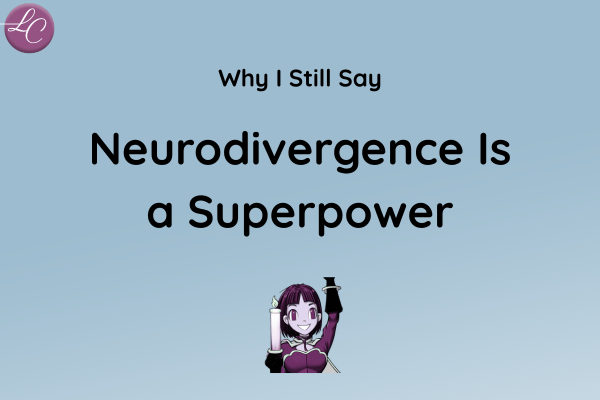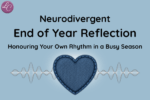Why I Still Say Neurodivergence Is a Superpower
I know not everyone likes the term “superpower” when it comes to autism, ADHD, dyslexia, or other forms of neurodivergence.
Some say it sugarcoats real challenges. Others feel it sets unfair expectations. And I hear that — truly.
But here’s why I still say it.
Because For Many, The Starting Point Is Feeling Broken
When you grow up being constantly corrected, misunderstood, or labelled as “too much” or “not enough,” you internalise the belief that there’s something wrong with you.
Many of the neurodivergent people I work with (and this includes me) spent years feeling defective. Masking, shrinking, trying to meet standards that were never designed for our brains or bodies.
So when I say “your neurodivergence is a superpower,” it’s not to deny the hard bits. It’s to disrupt the old story that we’re somehow fundamentally flawed.
The Double-Sided Coin
Neurodivergence often means living with big challenges: sensory overload, executive dysfunction, overwhelm, social burnout.
But the same brain wiring that makes us struggle can also be what makes us shine.
- That laser focus on a passion?
- The way patterns jump out where others see nothing?
- The creative problem-solving, deep empathy, or fierce sense of justice?
That’s not in spite of being neurodivergent. That’s because of it.
What It Feels Like Inside
When I’m in a flow state — writing, making music, or guiding a sound session — it’s like my entire nervous system is lit up from the inside. Everything clicks. Colours feel brighter, ideas spark, connections form effortlessly.
Is it overwhelming sometimes? Yes.
Is it beautiful? Also yes.
It’s why I sometimes describe neurodivergence as having a sensitive instrument — finely tuned, sometimes fragile, but capable of picking up and creating things others might miss.
Why “Superpower” Still Matters To Me
Because it reframes. It says:
- You’re not broken, just different.
- Your traits are not defects, they’re part of a beautifully complex design.
- You have capacities that are unique — and deeply needed in this world.
It’s also about hope. About planting the idea that even if school, work, or relationships have felt like relentless uphill battles, there’s still immense value in how your brain and body work.
Of Course, Challenges Are Real
Saying “it’s a superpower” doesn’t mean ignoring meltdowns, shutdowns, executive dysfunction, or the exhausting reality of living in a world not built for us.
But it does invite us to see the whole picture — including the brilliance and magic woven through our differences.
Keep Exploring With Me
I talk more about this in my video Why I Still Say It’s a Superpower (Even When Others Don’t).
If you’ve ever felt caught between “I’m struggling” and “I’m extraordinary,” this one’s for you — it’s about rewriting the old narrative of brokenness into one of worth and wonder.
You might also love:
- 10 Traits that I See in Neurodiverse People (a gentle, affirming look at some common threads I notice in neurodivergent folks — from sensory sensitivity to intense curiosity — and how these traits shape our lives.)
- Hyperfocus and Monotropism: The Joy and Challenge of Deep Dives (exploring why many of us become delightfully absorbed in special interests, the double-edged sword of losing hours in a passion, and how to honour this beautiful way of thinking.)
You can find these — along with soothing sound sessions, supportive chats, and honest reflections for my neurokin — on my YouTube channel, Different… And Loving It!
You’re not less-than. You’re not too much.
Your neurodivergence holds its own kind of superpower — whether that means seeing connections others miss, feeling life intensely, or loving with your whole heart.
And that’s something worth celebrating.






